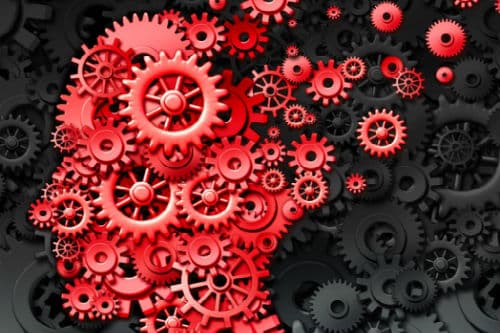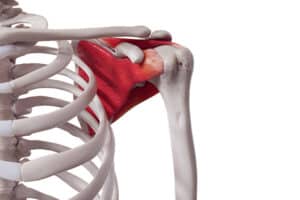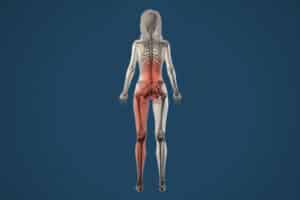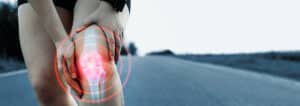Did you know that anyone can suffer from a brain injury? It can happen in many ways, but one common way is a brain injury sustained from a car accident. The CDC (Centers for Disease Control and Prevention) defines a traumatic brain injury (TBI) as a disruption in the normal function of the brain that can be caused by a bump, blow, or jolt to the head, or penetrating head injury.
Brain injuries can range from mild to severe. The most severe would be when a patient suffers from an extended period of unconsciousness or amnesia after the injury.
In British Columbia, between 21 and 38 people sustain a brain injury each day (http://brainstreams.ca/learn). In Canada, about 50 percent of acquired brain injuries come from falls and motor vehicle accidents (www.braininjurycanada.ca).
Symptoms
- Loss of consciousness for a few seconds to a few minutes
- No loss of consciousness, but a state of being dazed, confused or disoriented
- Headache
- Nausea or vomiting
- Fatigue or drowsiness
- Difficulty sleeping
- Sleeping more than usual
- Dizziness or loss of balance
- Memory or concentration problems
- Mood changes or mood swings
- Feeling depressed or anxious
Symptoms (moderate to severe brain injuries)
- Loss of consciousness from several minutes to hours
- Persistent headache or headache that worsens
- Repeated vomiting or nausea
- Convulsions or seizures
- Dilation of one or both pupils of the eyes
- Clear fluids draining from the nose or ears
- Inability to awaken from sleep
- Weakness or numbness in fingers and toes
- Loss of coordination
- Profound confusion
- Agitation, combativeness or other unusual behaviour
- Slurred speech
- Coma and other disorders of consciousness
Brain Injury and Car Accidents
Over half of reported traumatic brain injuries are the result of an automobile accident. The injury can occur from any force that penetrates or fractures the skull. The trauma to the brain can happen during a car accident when the skull strikes, for example, an object, like the steering wheel.
When the injury happens, there may or may not be an open wound. However, in the case of a car accident, it is important to note that the skull may not necessarily need to have been penetrated for a traumatic brain injury to occur. The force of the car accident may have a caused the brain to collide with the internal hard bone of the skull.
This type of incident can result in:
- Bruising of the brain (also known as a contusion)
- Internal bleeding in the brain (a brain hemorrhage)
A more serious brain injury can happen, when there is blunt trauma. Here are some of the characteristics of blunt trauma:
- Can happen in a car accident
- A moving head strikes another object, like a windshield
- The head is impacted, causing an open wound
- When the impact happens, the brain opposite the site of impact, is pulled away from the skull, injuring the brain there
Treatments
How does someone treat a patient with a brain injury? At the very beginning, the initial treatment helps to stabilize the individual. Next, rehabilitative care centre treatment helps restore the patient to daily life. Then, acute treatment is for minimizing secondary injury and life support. Surgical treatment may be used for preventing secondary injury through maintaining blood flow and oxygen to the brain, and minimizing swelling and pressure.
On-Going, Supportive Care
Quite often, patients with traumatic brain injuries need supportive care. They need:
- Monitoring patient breathing
- Sometimes they cannot breathe without assistance (may include a breathing tube)
- Monitoring of heart rhythm
- Prevention of seizures from occurring
- Administering fluids to the patient (usually through IV for fluid and nutrition)
- Monitoring the patient’s blood pressure
- The doctor and nurses will monitor pressure within the brain
- An assortment of diagnostic tests:
- X-rays of the brain
- CT scans of the brain
- MRIs of the brain
- Neck or back scans, possibly
- EEG tests (showing the presence of brain waves)
People Living with Brain Injuries
Tracy Morgan
In June 2014, Tracy Morgan was in a motor vehicle accident, the van he was in was struck by a tractor trailer. Tracy Morgan sustained a brain injury from this accident, and one passenger in his van was killed. He was in a wheelchair for many months, and then was able to walk with a cane. He eventually was able to come back to comedy, after two years.
Michael Schumacher
Michael Schumacher is a retired German racing driver, most famous for winning many races in Formula One racing. In 2013, he suffered a serious brain injury while skiing. He was in a coma for six months, from December 2013 until June 2014. In 2014, he was relocated to his home, and receives medical treatments privately.
Resources – useful sources of information
The Mayo Clinic — https://www.mayoclinic.org/diseases-conditions/traumatic-brain-injury/symptoms-causes/syc-20378557
The Mayo Clinic is a well-known resource for medical information. This is a good source for basic information about traumatic brain injuries. Includes information on risk factors, treatments, and drugs. Click through pages on the arrows at the bottom of each page, to get to the next page.
Brain Streams — https://www.brainstreams.ca
This website is a resource for people in B.C., looking for information on brain injuries. Basic brain information is included, a section about what to do after you have the injury and then get back home. Under the Stories tab, see videos from survivors of brain injury, doctors, caregivers, and supporters. The Events tab has information on local events that are coming up, throughout B.C.
Northern Brain Injury Association — https://nbia.ca
A source of information on brain injuries, including many statistics for Canada and B.C. Includes information on “mild” brain injuries, like concussions, brain injuries in children, studies in Canada on this topic, and the wide scope of brain injuries (in B.C., Canada, and internationally).
Brain Injury Canada — https://braininjurycanada.ca
Canadian information to help people with brain injuries and also to assist their caregivers. Includes the Pathways Ahead newsletter, and a blog with the latest information and news on brain injuries.
References
Mayo Clinic – website on Traumatic Brain Injury
https://www.mayoclinic.org/diseases-conditions/traumatic-brain-injury/symptoms-causes/syc-20378557
accessed on May 3, 2017
CDC – Centres for Disease Control and Prevention
Page on Traumatic Brain Injury & Concussion
https://www.cdc.gov/traumaticbraininjury/
accessed on May 3, 2017
Brain Injury Canada
access on May 5, 2017
Northern Brain Injury Association
accessed on May 5, 2017








